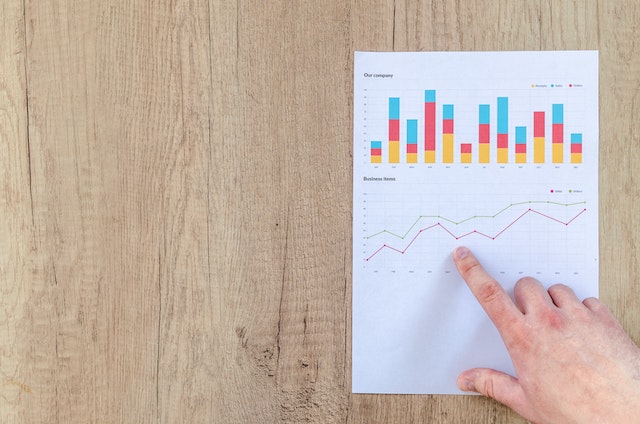
Weight loss is hard, especially when it comes to calorie counting. “How many calories should I eat to lose weight?” many inquire.
This question has no easy answer. Caloric needs depend on a variety of factors. For example, age, gender, height, weight, and physical activity level.
We will explore the science behind calories and weight loss. We will discuss the various factors that influence caloric needs. We will also delve into different methods for calculating caloric needs. You will find examples of how to calculate caloric needs for different individuals.
Additionally, we will discuss the recommended calorie deficit for weight reduction. You will know how to create a calorie deficit through diet and exercise. You will get some tips for reducing calorie intake while maintaining a healthy diet.
We will provide tips for tracking calorie intake and weight reduction progress. This information will help you calculate the right calorie intake.
Understanding Calories and Weight Loss

What is a Calorie and How Does it Relate to Weight Loss?
It quantifies the heat required to elevate one gram of water by one degree Celsius. Calories are used to quantify energy from meals and energy utilized by the body for weight reduction.
The relationship between calorie intake and reduction of weight is relatively straightforward. When we consume fewer calories than our bodies need, we create a calorie deficit. This calorie shortfall drives our bodies to consume body fat for energy. That ultimately leads to weight reduction.
Energy Balance and its Effect on Weight Loss
The concept of energy balance is the key to understanding how calorie intake affects weight reduction. Energy balance refers to the balance between the number of calories we consume and the number of calories we burn.
If we consume more calories than our body needs, we are in a state of positive energy balance. In this state, our body stores the excess calories as body fat, which can lead to weight gain over time. On the other hand, if we consume fewer calories than our body needs, we are in a state of negative energy balance. That can lead to weight reduction.
How the Body Uses Calories
The body uses calories to power various bodily functions. For example, breathing, digesting food, and circulating blood. Additionally, the body uses calories to fuel physical activity. That includes exercise and daily activities such as walking and standing.
When we consume more calories than our body needs, the excess calories are stored as body fat. This stored fat is then used by the body when we consume fewer calories than our body needs. It creates a calorie deficit and results in weight reduction.
Understanding how calorie intake relates to weight reduction requires an understanding of calories, energy balance, and how the body uses calories. By creating a calorie deficit, individuals can lose weight and improve their overall health.
Factors That Affect Caloric Needs
Age, Gender, Height, and Weight
Numerous variables influence how many calories an individual requires daily. That includes age, gender, height, and weight. Generally, younger individuals require more calories than older individuals. In addition, men’s increased muscle mass and larger frames necessitate a greater caloric intake. Similarly, taller individuals generally require more calories than shorter individuals. Individuals who weigh more require more calories to maintain their weight.
Basal Metabolic Rate (BMR)
Age, sex, height, weight, and body composition all have a role in determining BMR. For example, breathing, circulation, and cell production. Regular exercisers have higher caloric needs than the average person. Therefore, calculating an individual’s BMR is an essential factor in determining their daily calorie intake.
Physical Activity Level
Physical activity level is another critical factor in determining daily calories. People who are more active on a daily basis have a greater caloric need. The level of physical activity can range from light to intense. Each level requires a different number of calories to maintain body weight. Generally speaking, the caloric needs of people who do moderate to vigorous physical exercise are higher. It helps them to maintain their weight and lose weight more than those who engage in light physical activity or are sedentary.
Muscle Mass
Muscle mass is a significant factor in determining daily calories. Muscle is more metabolically active than fat. This means that those who have a lot of muscle need to eat more to keep their body weight the same. Additionally, building muscle through strength training can increase BMR. It can lead to an overall increase in calorie expenditure. Therefore, individuals looking to lose weight should focus on building muscle. It will increase their calorie intake and achieve sustainable weight reduction.
Health Conditions and Medications

An individual’s recommended daily caloric intake may be altered by certain medical conditions and drugs. For example, individuals with thyroid conditions may have a lower BMR. It requires a lower calorie intake to maintain their weight. Similarly, you will gain weight with certain medications and a higher calorie intake. Antidepressants and antipsychotics are some examples. People in these situations should talk to their doctor. They can determine the appropriate calorie intake for their unique situation.
How Many Calories Should I Eat Per Day?
Maintaining a healthy body weight requires calorie counting. Factors determine how many calories a person needs daily. For example, gender, age, weight, and activity level. Here are daily calorie recommendations for males, women, and children:
Men
To maintain weight, men need 2,500 calories each day. This value depends on age, weight, and exercise level. Men looking to lose weight should aim to consume fewer calories than they burn daily. They should keep it between 1,500-2,000 calories. It depends on their weight loss goals and activity level. To acquire weight, males should consume more calories than they burn. It should be between 2,500-3,000 calories, depending on their goals and activity level. To gain weight, you can consume higher calories.
Women
On average, women need around 2,000 calories per day to maintain their weight. This value depends on age, weight, and exercise level. Women looking to lose weight should aim to consume fewer calories than they burn daily. They should keep it between 1,200-1,500 calories. It depends on their weight loss goals and activity level.
On the other hand, women looking to gain weight should aim to consume more calories than they burn each day. Generally, it remains between 2,000-2,500 calories. This depends on their weight gain goals and activity level.
Children
The number of calories children require daily varies depending on their age, gender, and activity level. On average, young children require between 1,000-1,400 calories per day. Older children and teenagers require between 1,400-2,400 calories per day. It depends on their age and activity level. It’s essential to ensure that children consume a balanced diet that includes fruits, vegetables, whole grains, lean proteins, and healthy fats to support their growth and development.
Calculating Caloric Needs
To receive a healthy weight, you must understand how many calories an individual should consume each day. There are various methods to calculate daily calorie needs. That includes the Harris-Benedict equation and the Mifflin-St Jeor equation.
The Harris-Benedict equation estimates an individual’s BMR. It gives results based on their gender, age, weight, and height. Once the BMR is determined, it’s then multiplied by an activity factor. You can estimate the total number of calories an individual needs each day. The Mifflin-St Jeor equation is a newer equation. It is considered to be more accurate than the Harris-Benedict equation. It takes into account a person’s lean body mass. That can provide a more accurate estimate of calorie needs.
Let’s assess the calorie needs of a 35-year-old woman who is 5’6″ tall and 160 pounds.
Using the Harris-Benedict equation, her BMR would be calculated as follows:
BMR = 655 + (4.35 x weight in pounds) + (4.7 x height in inches) – (4.7 x age in years)
BMR = 655 + (4.35 x 160) + (4.7 x 66) – (4.7 x 35)
BMR = 1,462 calories per day
To estimate her total daily calorie needs, her BMR would be multiplied by an activity factor. For example, if she is moderately active, her activity factor would be 1.55, resulting in an estimated daily calorie need of 2,267 calories.
Using the Mifflin-St Jeor equation, her estimated daily calorie needs would be calculated as follows:
10 x weight in kg + 6.25 x height in cm – 5 x age in years + 5 (for women) – 161
10 x 72.7 + 6.25 x 167.6 – 5 x 35 + 5 – 161
1,413 calories per day
Methods for Calculating Calories
Counting calories is an essential aspect of maintaining a healthy weight. Understanding daily calorie needs might aid with weight loss or gain. Here are some methods for calculating calories:
Calorie Calculator
An online calorie calculator is available to provide an estimate of daily calorie needs. It works based on individual factors. For example, gender, age, weight, height, and activity level. These calculators use the Harris-Benedict or Mifflin-St Jeor equation to estimate calorie needs.
Basal Metabolic Rate (BMR)
Basal metabolic rate (BMR) refers to the number of calories an individual’s body needs to function at rest. This includes breathing, circulating blood, and maintaining body temperature. BMR accounts for approximately 60-75% of the total calories an individual burns each day. To calculate BMR, an individual’s age, gender, height, and weight are taken into account.
Harris-Benedict Equation
The Harris-Benedict equation estimates an individual’s BMR based on their gender, age, weight, and height. Once the BMR is determined, it’s then multiplied by an activity factor to estimate the total number of calories an individual needs each day. The activity factor takes into account the individual’s daily physical activity level.
Mifflin-St Jeor Equation
The Mifflin-St Jeor equation is considered to be more accurate than the Harris-Benedict equation. It takes into account a person’s lean body mass. That can provide a more accurate estimate of calorie needs. This equation uses age, gender, weight, and height to calculate BMR.
Bod Pod or DXA Scans
Bod Pod or DXA scans are body composition tests. It measures the amount of fat and lean muscle in an individual’s body. These tests can be used to determine an individual’s BMR and total calorie needs.
Activity Trackers

Activity trackers such as Fitbit or Apple Watch can estimate calorie burn. It works based on the individual’s daily activity level, heart rate, and other factors. These devices can help individuals track their daily calorie burn and adjust their calorie intake accordingly.
How Many Calories Should You Cut To Lose Weight?
Losing weight requires creating a calorie shortage. That means burning more calories than you consume. It’s crucial to realize that eating too few calories can harm your health. It may actually hinder weight loss in the long run. So, what is the recommended calorie shortage for weight loss?
Safe and lasting weight loss requires a 500–1000-calorie shortage per day. To lose 1-2 pounds each week, you should burn 500-1000 calories more than you consume each day.
Diet and exercise can help you lose weight. Diet is one of the best methods to establish a calorie shortage. This can be done by tracking your calorie intake using a calorie calculator or app. Make small, sustainable changes to your diet. Cut back on processed foods, snacks and sugary drinks.
Exercise is another important component of weight loss. It not only burns calories but also helps to build muscle. It can increase your metabolic rate and lead to more effective weight loss. Cardio and strength training can improve weight loss.
It’s crucial to recognize that decreasing calories too soon can impair your health. Eating too few calories can slow down your metabolism. Muscle loss can make weight loss difficult in the long run. Therefore, it is important to focus on creating a sustainable calorie shortage by making gradual changes to your diet and exercise routine.
When reducing calories, it is also important to maintain a healthy and balanced diet. Nutrient-dense foods including fruits, vegetables, whole grains, and lean proteins can fill you up. It also provides your body with the essential nutrients it needs to function properly.
Monitoring Progress

The process of losing weight is one that calls for dedication and self-control. Tracking your weight loss progress can keep you motivated and on target. Here are some tips for tracking your progress and adjusting your calorie intake:
The Importance of Monitoring Progress
Monitoring your progress is crucial when you’re trying to lose weight. It can help you track your development. Regular monitoring might also reveal patterns or barriers to weight loss.
Tips for Tracking Calorie and Weight Loss Progress
Tracking calories and weight loss is one of the best ways to track progress. A meal diary or calorie tracking software might help you track calories. By doing this, you can identify any areas where you may be consuming too many calories. You can adjust your diet accordingly.
To track your weight loss progress, you can weigh yourself regularly. Keep a record of your weight loss over time. It’s important to remember that weight loss can fluctuate. So it’s essential to focus on the long-term trend rather than daily fluctuations.
When to Adjust Calories Based on Weight Loss Progress
You may need to cut calories if you’re not decreasing weight fast enough. One way to do this is by reducing your daily calorie intake by 250-500 calories. This will create a calorie shortage and help you lose weight more quickly.
However, it’s essential to remember that eating a few calories can be counterproductive. It may even cause you to gain weight. Speak with a professional or a registered dietitian. They can help you to determine how many calories should you eat per day. They’ll also show you how to build a safe calorie shortage for current weight loss.
Conclusion
Counting calories and knowing how many calories you should eat is essential for losing weight. Understand your current weight, activity level, and daily caloric needs. It is critical in creating a calorie shortage and achieving your weight loss goals.
Use a calorie calculator and track your progress to alter your calorie intake. As a result, you can stay on track with your weight loss journey.
It’s crucial to note that losing weight too quickly can harm your health. Also, consuming a few calories may affect your health.
Before making any dietary adjustments, talk to your doctor. By following a balanced diet, you can achieve sustainable weight loss. So, you can improve your overall health and well being.













